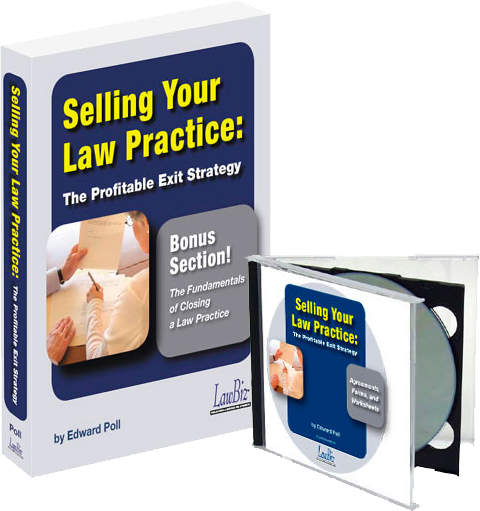I can attest from personal experience that interest in the sale of law practices continues strong and unabated. This may reflect continued economic stress, the aging of the profession or simply greater desire to look for greener pastures outside the law. No matter what the reason, lawyers regularly contact me for help in selling their practices, given that I have helped hundreds of lawyers sell and buy a law practice through my book Selling Your Law Practice: The Profitable Exit Strategy, my articles, my presentations and my hands-on consulting. The questions that I’m asked about practice sales often reflect how little even experienced lawyers know about such transactions. Here are some typical ones from recent conversations.
Do I need a nondisclosure agreement (NDA) before holding discussions with a buyer?
While circumstances may vary, my general answer is no, because an NDA does not become an issue until later in the process, if at all. However, if a lawyer is more comfortable having one, taking a general version from texts typically found in any law library should suffice.
What kind of information would a buyer require?
Financial information on the practice is of course essential, and lawyers selling a practice should be fully prepared to provide it. A list of current and past clients is also a necessity for conflicts checks. And remember that selling your practice is no time to be modest or reticent. If you have kept technology up to date, invested in new office space with modern infrastructure, maintained strong referral relationships, be sure to communicate those facts up front. Their value may not be easily quantifiable, but they definitely support the firm’s goodwill: its reputation, client base and client loyalty.
What type of contract should I have?
Contract is really a misnomer. Typically an attorney for either the buyer or the seller will draft a buy/sell agreement, which both parties will review. Some negotiation occurs, but the agreement must follow the deal memorandum drafted earlier in the process – something that I do whenever I’m asked to advise on the sale.
How do I set the selling price?
This can literally be the million dollar question. The value to you in selling your practice must be significant, or you would not be interested in selling your goodwill and a buyer would not be interested in buying your practice. Price is normally based on expected future earnings, but may also be affected by revenues that will be earned from the buyer’s talents. Many buyers want to pay a percentage of revenues collected rather than a fixed sum for the practice. However, it is generally preferable to sell (and buy) on a fixed, set sum. Setting that sum is where an experienced negotiator assists both sides in the deal. I have found that I can help buyer and seller reach their mutual objectives better than they could have on their own, simply because of how many transactions I have seen, and my unique approach to the negotiating process.

